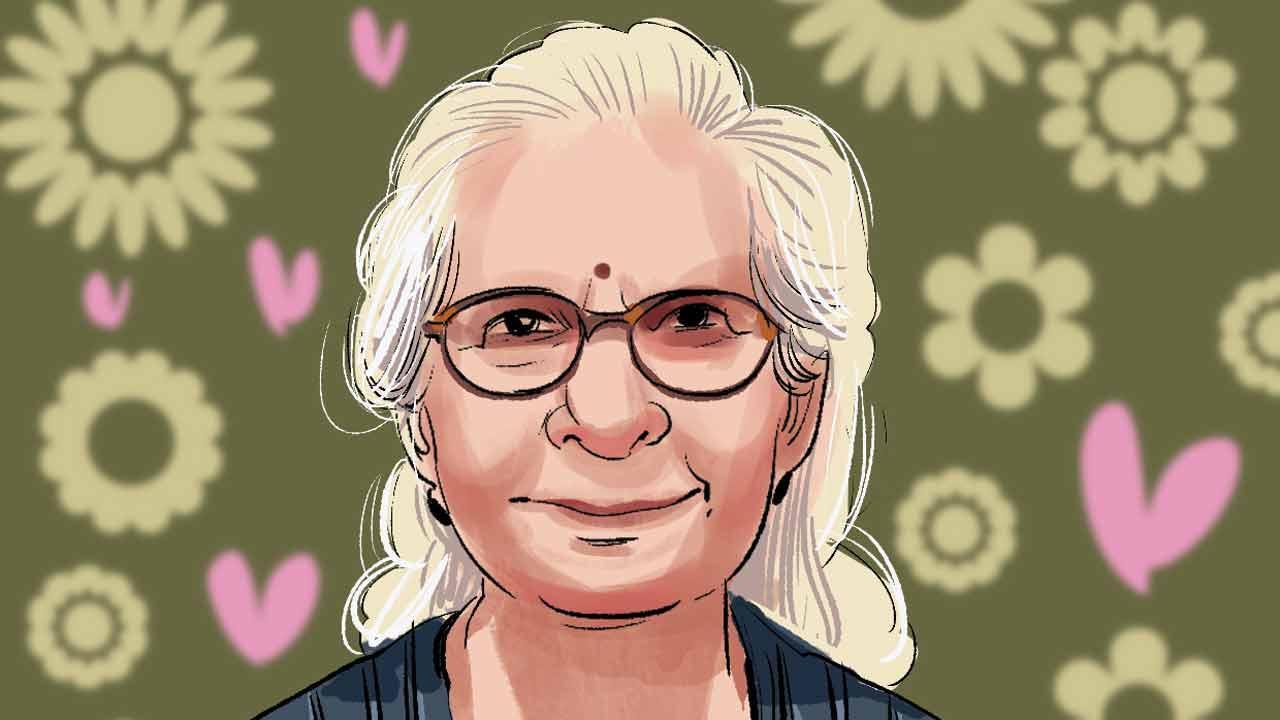The moment you look for equality in love or equal sharing in care-giving, you’re finished. Finito.

Illustration/Uday Mohite
Love is a minefield. So is caregiving.
ADVERTISEMENT
The truth is that you can’t apply mathematics to either. The moment you look for equality in love or equal sharing in care-giving, you’re finished. Finito.
Most families struggle with who should care for ageing parents. Arre, I live in Boston and she’s in Bombay and she expects me to look after my dad in Bombay, yaar. Other siblings are scattered in New York, Sydney and Nairobi, sometimes taking turns to visit or stay, sometimes consumed by guilt and distance, as there’s no family living in Mumbai to care for ageing parents, who have given their lives to make us what we are. Some feel other siblings are wealthier, with larger houses and full time help, better able to share care-giving responsibilities. Yet others feel married people get away with murder; single adult children are almost always “stuck” with the responsibility of looking after ageing parents. Some siblings prefer to pay the bills, or pay help, in lieu of spending time with parents themselves, even when living in the same city. Others look after their parents ruthlessly, out of a joyless sense of duty that can be terrifying and humiliating for a parent. Yet others struggle to do their personal best for ageing parents, with modest achievements, yet with gratitude and joy in their hearts. A flower here, a mishti there, laughing together at crows quarrelling over bits of papaya on the window sill. As Leo Tolstoy wrote in Anna Karenina, “All happy families are alike; each unhappy family is unhappy in its own way.”
Last year, Amma came to live with me, after a few decades of our family being scattered and Papa passing away. There was never any question that I would be happy to look after her; my concern was how well I could do so, given her age, and in the time of COVID-19. The trick is to keep expectations minimum, and simply do the best you can. Older people need to feel needed, and most still have a lot to give. I resumed learning Hindustani classical vocal music from Amma, which I last did as a child. It is beautiful, as we sing duets in Raag Bageshri, Raag Basant and Raag Malkauns.
After I’ve had the same cook and maid for about a decade or so, we’ve had an unlucky spell lately, running through three maids in a short time. Amma saw me struggle alone with the jhadu-pota, kapda, bhandi, khana, the whole chukker, for several weeks (How did our mums manage all this and much more?). Amma has been fantastic, making the least demands, chipping in whenever she can, and cheerfully upping her game. She’s figured out selfies: “Wait, let me comb my hair.”
Amma and I have been having a lot of frank conversations lately. Is there any wish you have? I asked her, after I had seen Farida Pacha’s moving documentary Watch Over Me. “I wish I could see you settled,” she said. In India “settled” = marriage, of course. “Fair enough,” I said. “Can you guarantee for any woman you know, that she would be much happier, more fulfilled as a person, and more compassionate, as a wife—than if she had the chance to lead her life entirely on her own terms?” She thought about it long and hard, then shook her head. “OK, do you feel I am happy, fulfilled as a person and probably already have everything or most of what I need?” I asked. She immediately said yes. I reached out and hugged her for a long, long time. I think we both felt very relieved at having had this conversation. And then she said, grinning, “If anyone asks you, you can always say, ‘Mere pass Maa hai’.” We both laughed so hard, then we did a high five. Glorious sense of humour she has. Our Amma.
Meenakshi Shedde is India and South Asia Delegate to the Berlin International Film Festival, National Award-winning critic, curator to festivals worldwide and journalist. Reach her at meenakshi.shedde@mid-day.com
 Subscribe today by clicking the link and stay updated with the latest news!" Click here!
Subscribe today by clicking the link and stay updated with the latest news!" Click here!











